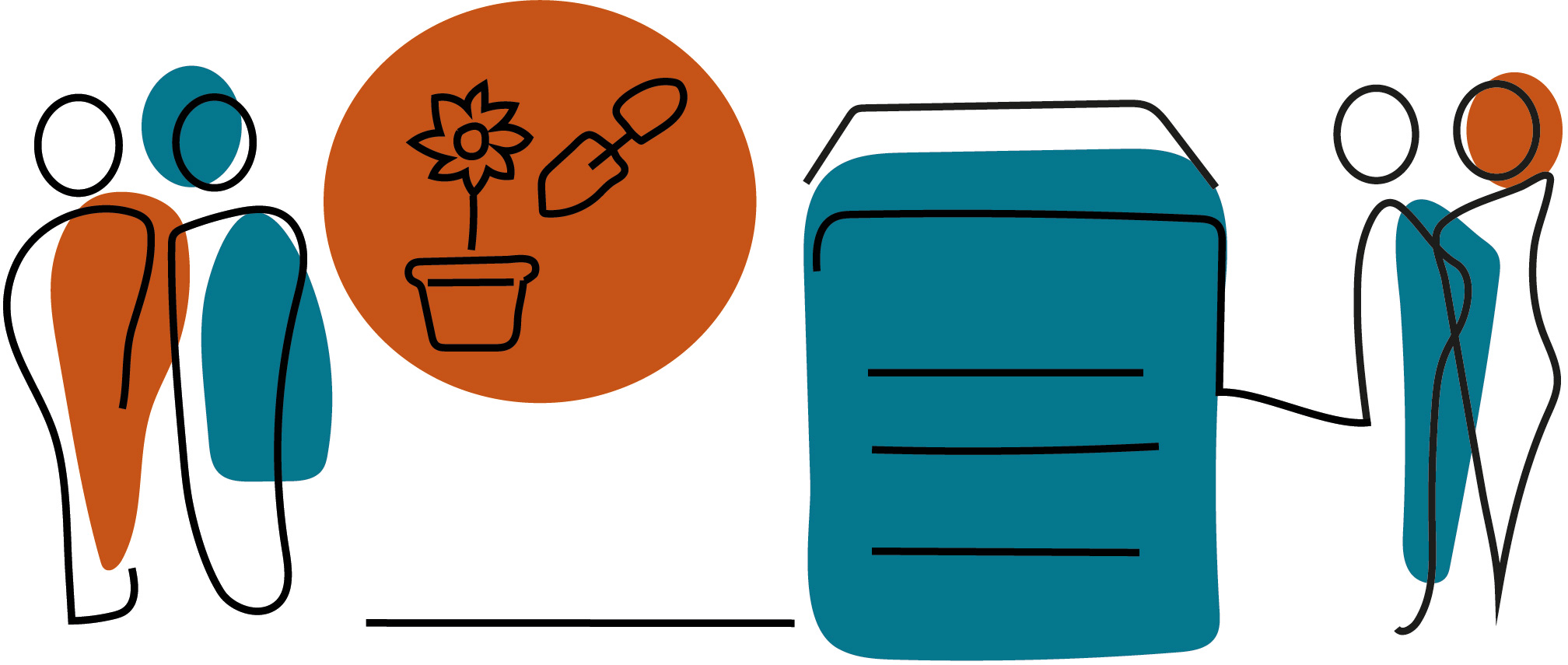
Our Story
Our work began as a response to the scarcity of grassroots cultural spaces for communities to gather in and express themselves in London. For our first project we worked at Orchard Gardens Community Centre on the Orchard Gardens Estate in Lewisham, South London, collaborating with local residents and artists to reimagine the under-used community centre as a shared home. We did this by making art with residents that encouraged them to deepen their relationships with each-other, the community centre and their surrounding environment. At the end of our time at Orchard Gardens, new relationships had been formed between residents and the centre was used more by a wider group, many of whom had never stepped foot inside their local community space! We were also able to identify the key barriers stopping residents from using the space on their terms and proposed recommendations for removing these barriers to ensure the centre continued to be a shared home for the local community.
Since April 2023, we have been based at the Soanes Centre in Tower Hamlets Cemetery Park, East London, where we are working closely with local charity and the stewards of the centre, Setpoint London East, to safeguard the space and ensure it can continue being a vital and cherished learning and community resource for future generations. Setpoint London East are a charity with a mission to support local schoolchildren discover the natural environment around them through science workshops in the ‘outdoor classroom’ that is Tower Hamlets Cemetery Park - a 33-acre biodiverse woodland reserve right in the heart of Mile End, east London. At Soanes Centre, our work so far is taking place in two key areas: firstly, we are providing organisational support to Setpoint London East in areas such as governance and stakeholder relationships; secondly, we create art and learning programmes that makes use of under-used space in the building and creates new relationships between people, the centre and the surrounding natural environment.
Since April 2023, we have been based at the Soanes Centre in Tower Hamlets Cemetery Park, East London, where we are working closely with local charity and the stewards of the centre, Setpoint London East, to safeguard the space and ensure it can continue being a vital and cherished learning and community resource for future generations. Setpoint London East are a charity with a mission to support local schoolchildren discover the natural environment around them through science workshops in the ‘outdoor classroom’ that is Tower Hamlets Cemetery Park - a 33-acre biodiverse woodland reserve right in the heart of Mile End, east London. At Soanes Centre, our work so far is taking place in two key areas: firstly, we are providing organisational support to Setpoint London East in areas such as governance and stakeholder relationships; secondly, we create art and learning programmes that makes use of under-used space in the building and creates new relationships between people, the centre and the surrounding natural environment.
Since we started working together in 2020, our work has been driven, and is continually being shaped by, the following observations and beliefs:-
- We understand culture as the material expression of how we, as human beings, understand ourselves in relation to each other and more-than-human kin.
- Art, then, is a way for us to make sense of these relationships.
- Historic and contemporary structures of power have produced disconnection and abandonment at all scales of life: from our bodies to the communities and environments we live in.
- This disconnection and abandonment, whilst affecting all forms of life, disproportionately affects people who have already been, and continue to be marginalised, at various intersections, by centuries of oppression.
- Sometimes, we refer to these structures of power as the Colonial-Capitalist-Continuum, to signify that contemporary oppression is driven by logics, strategies, tactics and techniques first developed by European colonists, and continually reproduced throughout five hundred years of colonialism and capitalism.
- To counter these harms, we work with communities and spaces that have been disproportionately affected, building spaces of connection and exchange, where art, learning and play help us be in relationships of dignity, respect and, ultimately, love with our own bodies, each-other and more-than-human kin
- As we strive to nurture ways of relating that can transform our relationships with our bodies, each-other and more-than-human kin, the spaces for this work have to be distanced from organisations and spaces that align with and serve to maintain ongoing structures of power. Here, distancing does not necessarily have to be spatial (outside of and/or geographically distant); it can also be practised in relation to values, principles, organisational forms and processes, that harm, rather than affirm, life.
